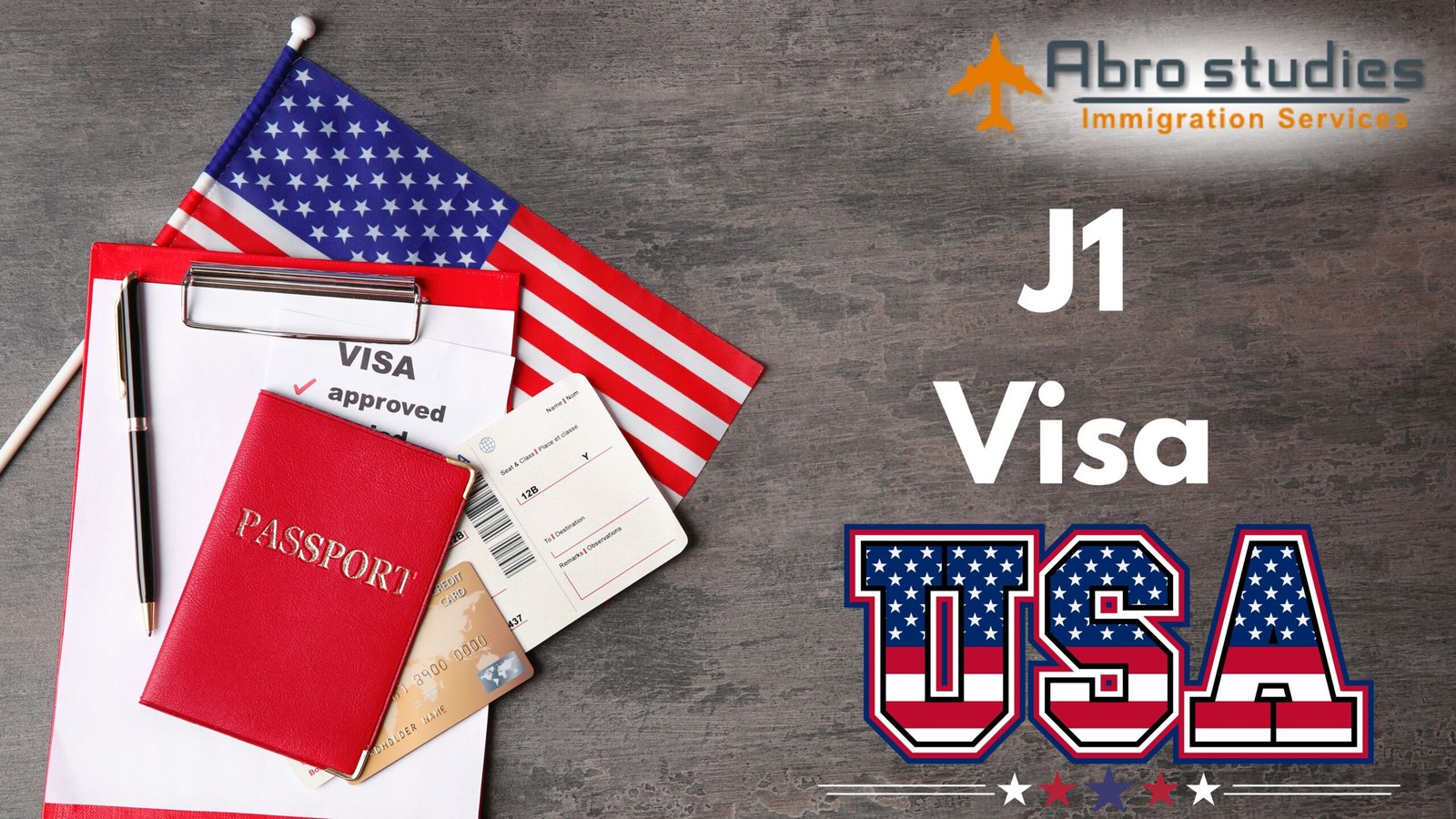J1 USA
SERVICES WE CAN OFFER
1. On Job Training in USA
2. Visa Support
3. Student will get training for up to 1.5 years as per University Curriculam
4. Pre-Departure Information
5. Arrival Support in USA


BENEFITS FOR THE STUDENTS
1. Student will get exposure to international working environment
2. International experience will them boost their skills and confidence
Understanding the J-1 Visa for the USA
The J-1 Visa USA is a non-immigrant visa provided by the United States to exchange tourists who are engaged in cultural exchange programmes, particularly those seeking medical or business training in the US. The J-1 Visa USA, administered by the United States Department of State, is a key component of the Exchange Visitor Programme, which aims to promote global understanding via educational and cultural exchange.
What is the J-1 Visa?
The J-1 Visa USA allows foreign nationals to work, study, teach, or receive training in the United States for a set length of time. The major goal of the J-1 programme is to foster mutual understanding between the people of the United States and other countries via educational and cultural interactions.
Categories of J-1 Visa
There are several categories under the J-1 Visa USA, each tailored to specific types of exchange programs. These categories include:
1. Au Pair: Participants live with a host family and provide child care services while experiencing American culture.
2. Camp Counselor: Participants work at summer camps in the U.S.
3. College and University Student: Students participate in full-time degree or non-degree programs.
4. Government Visitor: Distinguished international visitors are invited by U.S. government agencies to participate in various programs.
5. Intern: University students or recent graduates gain exposure to U.S. culture and receive hands-on experience in their chosen occupational field.
6. Physician: Foreign medical graduates receive medical training at U.S. institutions.
7. Professor and Research Scholar: Individuals teach or conduct research at U.S. institutions.
8. Secondary School Student: High school students study at an accredited public or private secondary school.
9. Short-Term Scholar: Professors, research scholars, or individuals with similar education backgrounds engage in short-term educational or research activities.
10. Specialist: Experts in a field of specialized knowledge or skill participate in exchange visitor programs.
11. Summer Work Travel: College and university students work and travel in the U.S. during their summer vacations.
12. Teacher: Qualified teachers teach full-time at accredited primary and secondary schools.
13. Trainee: Professionals receive training in their field of expertise.
Eligibility Requirements
To be eligible for a J-1 Visa USA, applicants must meet specific requirements, which can vary depending on the program category. However, general requirements include:
1. Sponsorship: Applicants must be sponsored by an accredited exchange program.
2. English Proficiency: Applicants must demonstrate sufficient proficiency in the English language to participate in their programs.
3. Intent to Return: Applicants must have a residence in their home country and intend to return there after completing their program.
4. Health Insurance: Participants must have health insurance that meets the U.S. Department of State requirements.
Application Process
The application process for a J-1 Visa USA involves several steps:
1. Find a Sponsor: The first step is to find an accredited program sponsor who will issue the Form DS-2019, the Certificate of Eligibility for Exchange Visitor Status.
2. Pay the SEVIS Fee: The Student and Exchange Visitor Information System (SEVIS) fee must be paid to maintain the participant’s information in the SEVIS database.
3. Complete the DS-160 Form: The online non-immigrant visa application form (DS-160) must be completed and submitted.
4. Schedule an Interview: An interview at the U.S. embassy or consulate is required. It’s important to schedule this as soon as possible due to varying wait times.
5. Prepare for the Interview: Gather necessary documents such as Form DS-2019, DS-160 confirmation page, passport, visa fee receipt, and photographs.
6. Attend the Interview: During the interview, consular officers will ask questions to determine the applicant’s eligibility and intent.
Required Documents
When applying for a J-1 Visa USA, the following documents are generally required:
1. Valid passport
2. Form DS-2019
3. DS-160 confirmation page
4. Visa application fee receipt
5. Recent photograph
6. SEVIS fee receipt
7. Financial evidence to cover expenses
8. Ties to home country to demonstrate intent to return
SEVIS and Form DS-2019
SEVIS is an online system that records information about exchange visits. Form DS-2019 is an essential document generated by SEVIS that is required for visa application processing. It comprises information on the exchange programme, the sponsor, and the participant.
Interview Tips
The visa interview is a crucial part of the application process. Here are some tips to help prepare:
1. Dress Professionally: Appearance matters, and dressing professionally can make a positive impression.
2. Be Honest: Answer all questions truthfully and concisely.
3. Bring All Documents: Ensure all required documents are organized and readily accessible.
4. Demonstrate Intent to Return: Clearly show ties to your home country, such as family, employment, or educational commitments.
5. Stay Calm: Remain calm and composed throughout the interview.
Duration of Stay
The length of stay for a J-1 Visa varies by type. Au pairs, for example, can stay for up to 12 months, with the option of extending it for another 6, 9, or 12 months. Research scholars and professors can stay for up to five years. The particular duration will be noted on Form DS-2019.
Two-Year Home Country Physical Presence Requirement
Many J-1 visa holders are required to maintain physical presence in their home country for two years. This implies they must return to their native nation for at least two years after finishing their programme before applying for certain US visas or permanent residency. Waivers for this need are allowed in certain cases, like as:
1. No Objection Statement: The participant’s home government issues a statement of no objection.
2. Request by an Interested U.S. Government Agency: An interested U.S. government agency can request a waiver on behalf of the participant.
3. Persecution: The participant may face persecution if they return to their home country.
4. Exceptional Hardship: The participant’s U.S. citizen or permanent resident spouse or child would face exceptional hardship if the requirement is enforced.
Rights and Responsibilities
J-1 Visa USA holders have specific rights and responsibilities, including:
1. Work Authorization: Many J-1 Visa categories allow participants to work, either as a primary activity (e.g., teachers, researchers) or as a secondary activity (e.g., students on-campus).
2. Social Security Number: Participants can apply for a Social Security Number, which is necessary for work and tax purposes.
3. Travel: J-1 Visa holders can travel within and outside the U.S., but must ensure they have proper documentation for re-entry.
4. Compliance with Program Rules: Participants must adhere to the rules of their exchange program and maintain valid health insurance.
Dependents
J-1 visa holders can bring their spouses and unmarried children under the age of 21 to the United States on J-2 visas. J-2 dependents can study and seek for employment permits. However, their ability to work is reliant on demonstrating that the employment is for personal or recreational purposes rather than to support the J-1 Visa holder.
Transitioning to Other Visas
After finishing the J-1 programme, participants may seek to remain in the United States under a different visa category. A change of status application is required when transitioning to another visa type, such as H-1B or F-1. To ensure compliance with US immigration regulations, you should plan ahead of time and obtain counsel from immigration specialists.
Common Challenges and Solutions
J-1 Visa holders may face challenges such as cultural adjustment, homesickness, and understanding U.S. workplace norms. To overcome these challenges, participants should:
1. Engage in Cultural Activities: Participate in cultural exchange activities to better understand American culture.
2. Seek Support: Utilize support services offered by the program sponsor, such as counseling and community resources.
3. Network: Build a network of friends and colleagues for support and guidance.
4. Stay Informed: Keep up-to-date with immigration policies and program requirements.
Conclusion
The J-1 Visa provides individuals with a unique opportunity to experience life in the United States while engaging in cultural and educational exchanges. Understanding the rules, application procedure, and duties is critical to a successful exchange experience. By thoroughly planning and utilising available resources, J-1 Visa holders can make the most of their time in the United States while also contributing to international understanding and collaboration.

